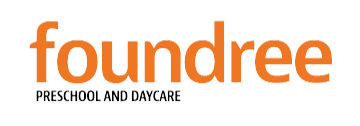
As parents, you don’t directly feed your child solid food when they are young right? You start off with easily digestible food like cereals, milk, porridge and more. You do this to prepare your toddler’s body to eat and digest solid food as they grow up. Now it’s obvious for you to think, what’s the connection between baby food and Kindergarten. Let’s find out.
Soft food or baby food is Kindergarten and solid food is Primary school. Kindergarten is an educational programme for children aged 2 and up that allows them to experience the transition from home to school and prepare for primary school.
It plays a major role in developing their motor and social skills. Kindergarten comes from the German word “kindergarten,” which means “children’s garden”.
It’s the second place your child spends most of the time after home. So, you must ensure that you pick the best Kindergarten to enhance the learning skills of your child. The nature of the staff, safety of the premise, location, and teaching techniques are some of the factors that you should consider before choosing a Kindergarten for your child as it makes the journey of learning exciting for them.
“Is Kindergarten important for your kids?” – This is a question which has been in debate for years and so we would like to shed some light on the benefits of Kindergarten.
1. Overall development:
The foundation of a kindergarten programme is learning through play. Children are naturally curious about their environment, and kindergarten education focuses on teachings that allow them to be exposed to new concepts through fun activities.
2. Basic skills:
Literacy and numeracy abilities have become crucial educational foundations. Kids learn these skills through enjoyable activities such as drawing, colouring, and listening to stories. Learning these skills at a young age increases the likelihood of future academic success. They are taught fundamental numbers, shapes, and vocabulary that helps them study more effectively.
3. Emotional flexibility:
Kindergarten allows children to further improve their social abilities. They form bonds with other youngsters and try to grow alongside them. They learn to share, take turns, communicate their thoughts to others, and most importantly, they become self-sufficient. Kindergarten students are believed to become more emotionally stable since they interact with other children of the same age on a daily basis.
4. Attachment to learning:
The kindergarten programme fosters the development of social and cognitive abilities. When children are exposed to innovative things through pleasant and engaging activities, they respond positively to learning. It assists children in settling into elementary school more confidently.
Apart from these benefits, children establish good habits in their everyday routine as a result of their kindergarten education. They become self-sufficient and competent in accomplishing little activities on their own. They begin to take care of daily duties such as cleaning their teeth and properly washing their hands, which makes them more responsible. Kindergarten schools in Baner have a structured environment which helps children establish a solid schedule and makes things easier for both kids and parents by teaching them how to collaborate and be calm in different scenarios.
So, make the right choice and help your child take the first step towards schooling through Kindergarten.

